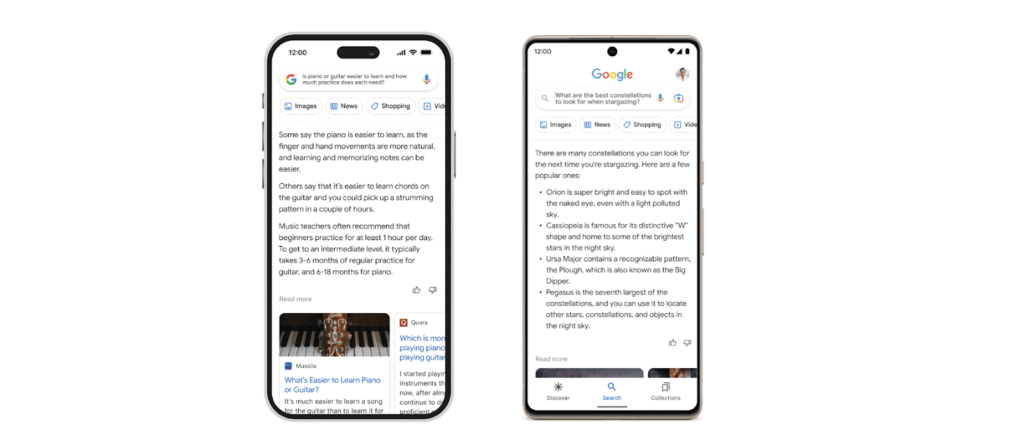As of 2023, we expect that SEO will still exist in 5 years. While Google’s ultimate goal is to create a search engine that cannot be manipulated, we don’t see the need for SEOs will go away in the near future, because Google’s algorithm is still rapidly evolving.
In the past couple of months, Google has made major changes to its algorithm. Perhaps the most influential change is Google adding experience to its EAT algorithm (effectively, making the algorithm now no longer called EAT, but EEAT – Experience, Expertise, Authority, and Trust). At the core of the update, the change aimed to make content demonstrating real, hands-on experience in a certain topic or with a certain product become as important as having expertise.
Google also has recently announced its ChatGPT competitor, Bard. It’s expected that Bard will become part of Google’s Search Engine, much like Bing’s AI search model. At the moment, Google is working rapidly on releasing the AI-powered Google 2.0, also known as Project Magi.
We don’t know what Project Magi will look like quite yet, but we don’t expect it to ever replace traditional search completely. Bing’s AI doesn’t let the two worlds compete on SERPs – but rather, the engine has a toggle feature between internet search and AI chatting:

In the announcement preview, it seems like Google’s idea is to have Bard AI blend in with traditional search. However, the examples provided seem like very specific, long-form questions that, arguably, would be hard to capture in a 55-word featured snippet format that Google search currently has anyway, so they’re not a threat to current rankings:

These take up a lot of screen space, but regular web results seem to be featured below the conversational AI answer in the form of a carousel:

We predict that ranking second to the AI-powered answer should not affect click-through rates. Arguably, users who come to just see a quick answer to their question will bounce from the SERPs without clicking through to the featured snippet regardless if the answer was pulled from a website article or written by AI. Users who do want to learn more will still be able to move forward from the AI snippet to traditional search with a single scroll.
Recent changes have SEOs concerned that thought leadership content will become less important than product reviews, or that rankings will be replaced with AI-generated content, and with that – there will be less and less need for SEO specialists.
From our perspective, quite the opposite is true – more competitive algorithms will mean SEO specialists will be more in demand than ever before. While there will likely be more limited space on SERPs if AI takes a chunk of the Question-Answer results (which are currently covered by featured snippets and People Also Ask boxes), regular search results will still exist, as well as Google’s shopping grid, image results, video results, Google’s local map pack results, and possibly even more new search features and result types that are yet to be developed.
SEOs will need to learn how to co-exist with AI, as well as how to generate and promote UGC more effectively, and to create more authentic content to capture the (potentially) more limited space they do have. Webmasters relying on outdated tactics, such as black-hat link building, keyword stuffing, or duplicating content without added value will have a hard time adjusting to the new SEO landscape.
Alongside questioning the existence of SEO in itself in the new AI-powered online world, there is also the rising question of whether AI will replace SEO specialists. The short answer is no – the long answer can be found here:
And if our predictions aren’t enough to convince you that SEO isn’t going anywhere any time soon, then perhaps Google’s own senior search analyst John Mueller can:

Contact Fire&Spark to learn how to adapt your SEO strategy to AI and changing algorithms in 2023.

